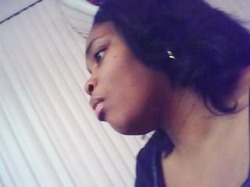Meet Kim Wilson

I grew up in the late 60s-70s with dyslexia, and it was no easy undertaking. In the first grade, I attended a catholic school on the Eastside of Detroit and my first grade teacher was a Nunn named Sister Rosa. We had just begun reading “See spot run” and “Dick and Jane” books. What should have been simple reading for me was not simple at all. The teacher would ask me to read and when I looked down at the page, it looked as though the words were running from me; they were literally moving across the page. As punishment, Sister Rosa would sit me in the back corner of the classroom for not being able to read like the other children and order me not to make a sound while I was in the corner.
I couldn’t read, and I did not know how to explain this to anyone, so I keep trying with no help and no way out of my situation. It was extremely frustrating and disappointing for me. I don’t think they had ever heard of dyslexia back then, which complicated matters even more. Obviously, I had never heard of it, nor had my parents. They didn’t know what to make of my inability to read, but they both knew that I was not what you would consider lacking of intelligence. I remember having flash cards and my aunts would try to help me with my words and I could never remember the word or the definition.
It was frustrating for me as well as for my family. People began to think I was lazy or just slow. In the 5th grade, my teacher spoke with my parents and told them they would have to put me in the LD class (learning disability). I stayed in that class until I graduated from that school in the 8th grade, and the whole time, they never gave me any kind of testing what so ever. I felt so out of place in there with kids that had helmets on, and some would even drool uncontrollably. I was neither dumb nor stupid and I didn’t know why I had been placed in this type of class. I basically slid through school never getting good grades, always C’s and D’s. When I reached high school, I wanted to get on the school newspaper and I did for a little while. The editor told me I had good ideas but I could not re good enough. That really bruised and lowered my self esteem and as a result, I rebelled against the system.
When I first believed I was dyslexic; I was watching the “Cosby show” and the character Theo was diagnosed with this disorder. I remember running in my mom’s room and telling her, “The way he feels, that’s how I feel mom. I have the same symptoms as Theo.” The next weeks I was tested and the test indicated that I had mild to moderate dyslexia. That was a weight off of my shoulders; now I knew I was not dumb or stupid. I had a disability and that, I could live with. I just learned differently and read differently but I still could do whatever I wanted to do and be whoever I wanted to become.
I the African American community, the proper diagnosis of dyslexia is very rare, if at all. In our community we talk about ADHD, ADD and LD but you very seldom hear anyone talk about being dyslexic. First of all, the average public school does not test for dyslexia. Secondly, the testing is extremely expensive. Furthermore, it is often looked upon in the African American community as if it were not actually a disability. In our community we have a lot of children in LD classes who don’t necessarily need to be there. Much of their mental capacity is beyond average, however they just having a reading disorder and they learn differently. In the African American community, we need as parents, teachers, and community leaders, to challenge ourselves to ensure that our children are getting tested properly in school or referred to proper test facilities to be tested for any suspected disabilities. Being dyslexic and not knowing it, is frustrating and humiliating. I got called dumb, and LD and a slew of other derogatory names that kids call other children that are slower learners, for so many years, and I knew I was not dumb or slow.
Not knowing until I was 18 years old, that I was dyslexic derailed my life and set me on a path that was not conducive to a healthy childhood. I could not complete anything that I had started because it was frustrating not to know why I just was not getting it, so I would simply give up. Getting tested and taking the classes helped me tremendously. They taught me how to read all over again and I still have problems pronouncing larger words and comprehending when I read. But I know now how to go back to my basics of phonics and sound out words and read things 2-3 times if I have to, in order to fully understand. Knowing that I had dyslexia brought closure to my learning pains. Since my diagnosis, I have written 2 books and I am in the process of having one of them published now and have vowed to advocate in my community, for dyslexia for all the children that are put in that corner and don’t know why. You can do whatever you put your mind to do and dyslexia does not have to hinder your dreams.
